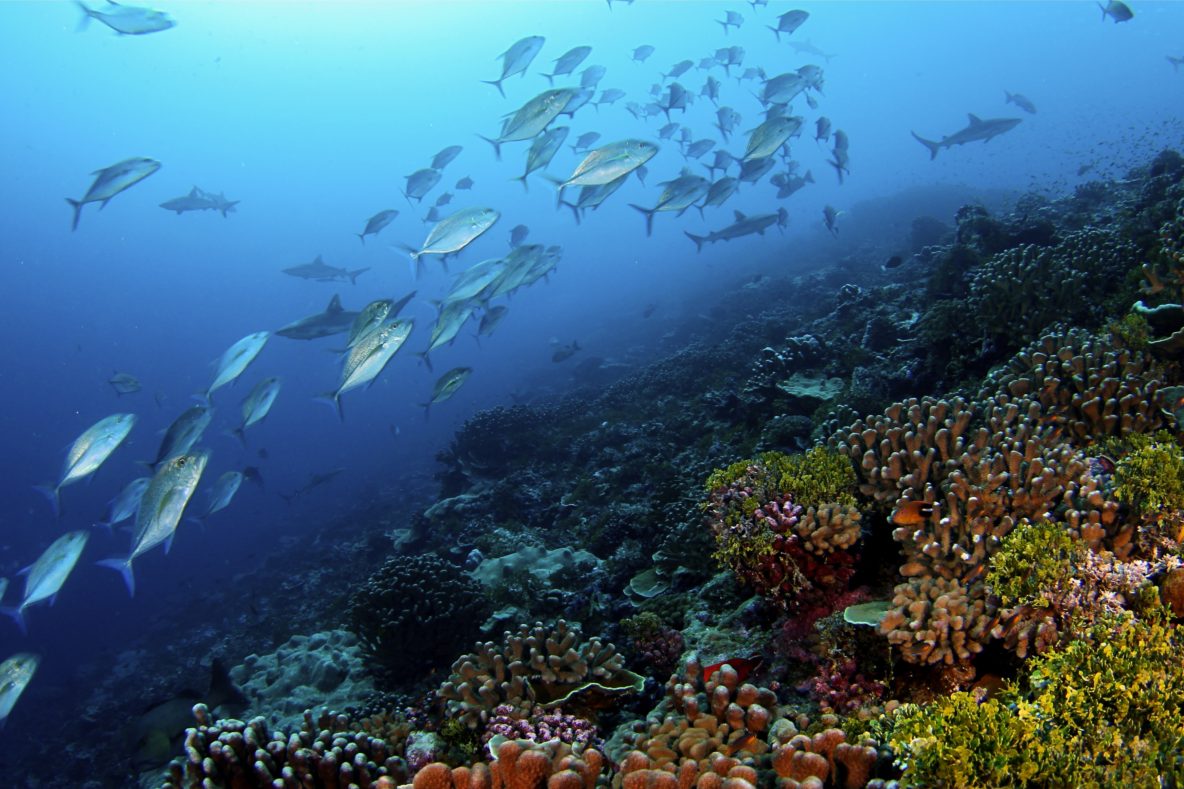I. C. Enochs, D. P. Manzello, E. M. Donham, G. Kolodziej, R. Okano, L. Johnston, C. Young, J. Iguel, C. B. Edwards, M. D. Fox, L. Valentino, S. Johnson, D. Benavente, S. J. Clark, R. Carlton, T. Burton, Y. Eynaud and N. N. Price
Read the full article here.
ABSTRACT:
Rising anthropogenic CO2 in the atmosphere is accompanied by an increase in oceanic CO2 and a concomitant decline in seawater pH (ref. 1). This phenomenon, known as ocean acidification (OA), has been experimentally shown to impact the biology and ecology of numerous animals and plants2 , most notably those that precipitate calcium carbonate skeletons, such as reef-building corals3 . Volcanically acidified water at Maug, Commonwealth of the Northern Mariana Islands (CNMI) is equivalent to near-future predictions for what coral reef ecosystems will experience worldwide due to OA. We provide the first chemical and ecological assessment of this unique site and show that acidification-related stress significantly influences the abundance and diversity of coral reef taxa, leading to the often-predicted shift from a coral to an algae-dominated state4,5 . This study provides field evidence that acidification can lead to macroalgae dominance on reefs.

